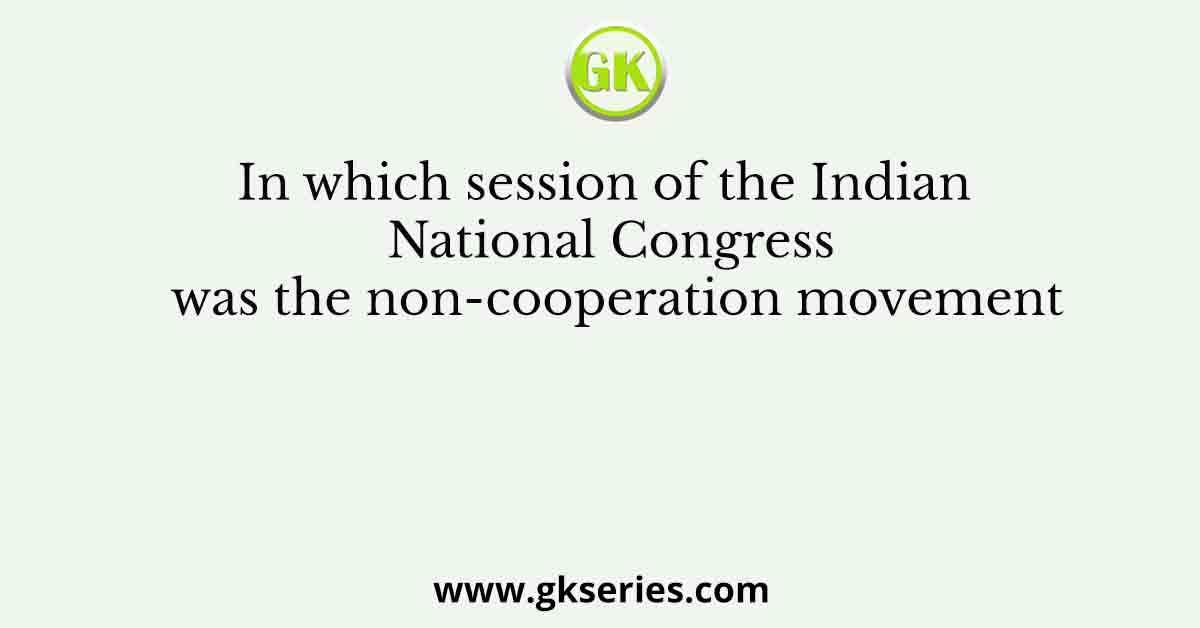
Q. In which session of the Indian National Congress was the non-cooperation movement passed?
(a) Kanpur
(b) Mumbai
(c) Nagpur
(d) Kolkata
Ans: (c) Nagpur
Explanation: The non-cooperation movement was passed in the session of the Indian National Congress held in (c) Nagpur.
The Nagpur session of the Indian National Congress was held in December 1920. During this session, Mahatma Gandhi, as the leader of the Congress, proposed the adoption of the non-cooperation movement as a means to fight for independence from British rule.
Gandhi’s resolution on non-cooperation was passed during the Nagpur session, and it marked a significant shift in the approach of the Indian National Congress. The resolution called for Indians to boycott British institutions, including educational institutions, law courts, and government services, and to engage in peaceful civil disobedience as a form of protest.
The adoption of the non-cooperation movement at the Nagpur session reflected the growing discontent among Indians with British rule and their willingness to employ nonviolent means to assert their rights and push for self-governance.





